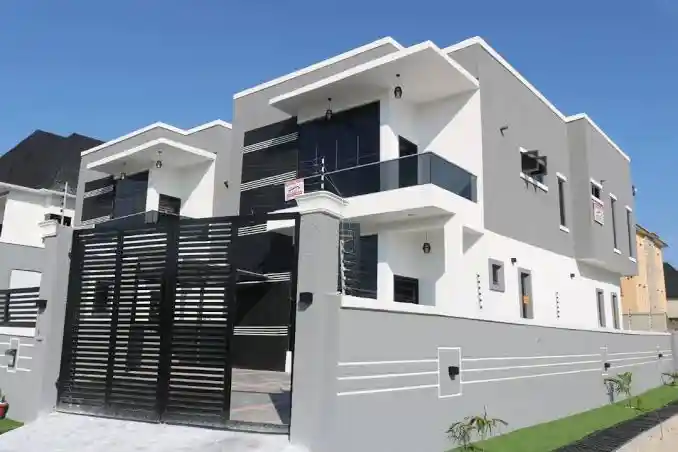Nigeria’s real estate market is one of the fastest-growing in Africa, attracting local and international investors. With a population of over 220 million and rapid urbanization, property investment in key cities offers lucrative returns.
TJ News Nigeria reports that the right location, combined with proper due diligence, can yield high rental income, capital appreciation, and long-term security. This guide highlights the 10 best cities to invest in real estate in Nigeria, providing insights on why they are ideal for property buyers and investors.
1. Lagos
Why Invest: Lagos is Nigeria’s commercial capital and has a booming real estate market. The city’s economic activities, rising population, and limited land supply make property highly valuable.
Key Areas for Investment: Lekki, Victoria Island, Ikoyi, and Ajah.
Investment Opportunities: Residential apartments, luxury homes, and commercial offices.
Market Insights: High demand for rental properties due to expatriates and professionals. Land scarcity drives appreciation.
2. Abuja
Why Invest: As the nation’s capital, Abuja is politically stable and has consistent infrastructure development. The city attracts government workers, diplomats, and business executives.
Key Areas for Investment: Asokoro, Maitama, Garki, Wuse, and Jabi.
Investment Opportunities: Villas, townhouses, and commercial spaces near government offices.
Market Insights: Abuja’s planned city structure ensures organized growth, making property investments secure and long-term.
3. Port Harcourt
Why Invest: Known as the oil capital of Nigeria, Port Harcourt benefits from high-income earners and expatriates. Industrial and commercial growth drives real estate demand.
Key Areas for Investment: GRA Phase 1 and 2, Rumueme, and Trans Amadi.
Investment Opportunities: Luxury apartments, duplexes, and office complexes.
Market Insights: High rental yields due to oil industry professionals, making it ideal for short- and long-term investments.
4. Kano
Why Invest: Kano is a commercial hub in Northern Nigeria with a large population and thriving trade markets. The city’s expanding middle class increases property demand.
Key Areas for Investment: Fagge, Tarauni, and Nassarawa GRA.
Investment Opportunities: Residential estates, commercial shops, and mixed-use developments.
Market Insights: Affordable land prices compared to southern cities make Kano attractive for investors seeking volume growth.
Pay Attention To: How to Buy Property in Nigeria: Step-by-Step Guide
5. Ibadan
Why Invest: As one of the largest cities in Nigeria, Ibadan has affordable land, expanding infrastructure, and proximity to Lagos. It is an educational hub with a high student population.
Key Areas for Investment: Bodija, Oluyole, Agodi, and Ring Road estates.
Investment Opportunities: Rental housing, student hostels, and commercial properties.
Market Insights: Growing demand from students and middle-income earners ensures consistent rental income.
6. Kaduna
Why Invest: Kaduna is an industrial and agricultural hub, offering investment opportunities with moderate land costs and government incentives for investors.
Key Areas for Investment: Rigasa, Unguwan Rimi, and Kakuri.
Investment Opportunities: Affordable housing estates, commercial complexes, and mixed-use developments.
Market Insights: Industrial growth increases housing and commercial property demand. Kaduna remains underexplored, offering high potential appreciation.
7. Enugu
Why Invest: Enugu, the coal city, has a growing middle class, stable local economy, and a peaceful environment, attracting retirees, investors, and professionals.
Key Areas for Investment: Independence Layout, New Haven, and GRA Enugu.
Investment Opportunities: Residential apartments, townhouses, and boutique hotels.
Market Insights: Land and property prices are still reasonable, but rising demand is driving appreciation.
8. Effurun/Warri
Why Invest: Warri is an oil-rich city with a growing commercial base. Its strategic location in Delta State facilitates trade and industrial development.
Key Areas for Investment: Effurun, Udu, and Enerhen.
Investment Opportunities: Residential estates, apartments, and commercial buildings.
Market Insights: The presence of multinational companies and oil industries ensures steady rental demand.
9. Abeokuta
Why Invest: Abeokuta, the capital of Ogun State, benefits from proximity to Lagos, affordability, and increasing infrastructure development.
Key Areas for Investment: GRA, Oke Mosan, and Ibara.
Investment Opportunities: Residential estates, mixed-use developments, and commercial shops.
Market Insights: Investors seeking affordable alternatives to Lagos often turn to Abeokuta for high-growth potential.
10. Onitsha
Why Invest: Onitsha is the commercial heart of southeastern Nigeria, with thriving markets, industrial zones, and a strategic location along the River Niger.
Key Areas for Investment: Ose, Inland Town, and Upper Iweka.
Investment Opportunities: Commercial properties, warehouses, and residential units.
Market Insights: Onitsha offers high rental yields due to traders and business activities. Industrial expansion further increases property demand.
Tips for Real Estate Investors in Nigeria
- Engage licensed professionals: Lawyers, estate surveyors, and licensed agents ensure legal compliance.
- Verify property documents: Always check C of O, Deed of Assignment, and land registry records.
- Understand market trends: Prices vary significantly between cities; research before buying.
- Consider infrastructure development: Areas with roads, electricity, and schools often appreciate faster.
- Avoid unverified sellers: Work only with trusted developers or property owners.
Key Takeaways
Investing in Nigerian real estate offers significant potential for capital appreciation and rental income. Cities like Lagos, Abuja, and Port Harcourt attract high-end investors, while cities like Kaduna, Ibadan, and Abeokuta offer affordable options with high growth potential.
TJ News Nigeria reports that careful due diligence, legal verification, and market research are critical to avoid scams and ensure long-term returns. Real estate remains a powerful tool for wealth creation in Nigeria, provided investors follow structured steps and engage professionals.
Frequently Asked Questions (FAQs) About Investing in Real Estate in Nigeria
1. Which city is the best for real estate investment in Nigeria?
Lagos remains the top choice due to its commercial importance, limited land supply, and high rental demand. Other cities like Abuja, Port Harcourt, and Kano also offer strong investment potential.
2. Can foreigners invest in Nigerian real estate?
Yes, foreigners can buy property in Nigeria, but they must comply with local property laws and work with licensed agents and lawyers to ensure legal ownership.
3. How do I verify a property before investing?
Ensure the property has a Certificate of Occupancy (C of O), conduct a land search at the State Land Registry, and verify that there are no disputes or encumbrances on the land.
4. What are the top affordable cities for real estate investment?
Cities like Kaduna, Ibadan, and Abeokuta offer lower land and property prices while still promising high appreciation potential.
5. What types of properties yield the best returns?
Residential apartments, townhouses, and commercial offices in high-demand areas typically provide the highest rental yields and long-term capital appreciation.
6. How do I choose the right location for investment?
Consider factors like infrastructure development, population growth, rental demand, security, and proximity to commercial hubs. Areas with schools, roads, and utilities often appreciate faster.
7. Are there risks in Nigerian real estate investment?
Yes, risks include fraudulent sellers, unverified land titles, multiple sales, and regulatory issues. Proper due diligence, legal verification, and professional guidance can mitigate these risks.
8. How long does it take to see returns on property investment in Nigeria?
It depends on location and property type. High-demand cities like Lagos and Abuja can yield rental income within months, while capital appreciation may take 3–5 years or longer.
9. Should I work with a real estate agent?
Yes, a licensed estate agent or broker can guide your property search, handle negotiations, and ensure legal compliance. Only work with agents certified by the Nigerian Institution of Estate Surveyors and Valuers (NIESV).
10. What documents are essential for property investment?
Key documents include:
- Certificate of Occupancy or Title Deed
- Sale Agreement
- Deed of Assignment
- Receipts of payment
- Local government approvals






